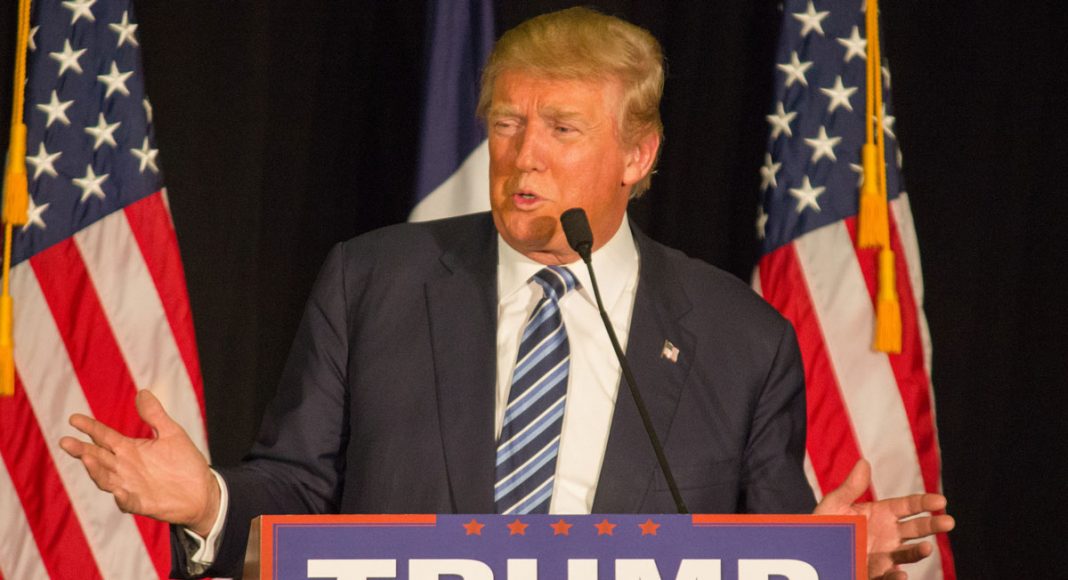This week Buzzfeed News published an explosive report on the White House organizing a committee with the design to negatively shape the narrative around marijuana and its legalization. The Marijuana Policy Coordination Committee, as it’s been named, asked the Drug Enforcement Agency as well as 14 other federal agencies to collect information on the “negative impacts of marijuana use, production, and trafficking on national health, safety, and security.” How are politicians responding to Trump’s anti-marijuana committee?
The committee’s mission stands in stark contrast to the overwhelming support from the public over marijuana legalization. Currently, 30 states plus Washington D.C. have legalized some form of medical marijuana while a Quinnipiac poll in April showed that 63 percent of Americans support legalization. In addition, three quarters of Americans want Attorney General Jeff Sessions and Trump to leave state marijuana laws alone, and one out of four young Americans say they “regularly” consume cannabis, according to a Gallup poll.
-
Related Story: DOJ Continues To Sandbag Medical Marijuana Research
Perhaps what is most perplexing from the outside looking in, is how the committee’s goals stand in contrast to public statements that Trump has made regarding marijuana. The President has voiced support for the STATES Act, bipartisan legislation co-sponsored by Sen. Cory Gardner (R-CO) and Elizabeth Warren (D-MA) that would protect state laws regarding marijuana from federal interference.
This news has left many in and outside Washington struggling to understand whether the Marijuana Policy Coordination Committee will generate serious momentum to roll back progression cannabis reform or the final rattles of marijuana prohibitionists. We collected the various statements politicians have made to media to better understand what’s really going on.
Alex Siciliano, spokesperson for Sen. Gardner
Regardless of the accuracy of the story, Senator Gardner remains confident in the commitment the President made to him to support a states’ rights solution to the current disconnect on marijuana law. […]
Forty-seven states have now acted in a way that is contrary to the Controlled Substances Act and there are more initiatives on the ballot this year. Whatever their decision, these states ought to be respected.
I don’t think Trump was being disingenuous when he said he supported reform. I genuinely believe that there’s a lack of control of what’s going on in the executive branch as it relates to marijuana policy. Now people who want to use this against the president will, but the reality is the person who can oversee all of this attentively probably doesn’t exist.
Those who seek to maintain the oppressive policies of cannabis criminalization are grasping at straws in their effort to undo the public policy progresses that have now been enacted in a majority of states, and that are widely supported by voters of both major political parties.
I just don’t understand: Why would they make this full court press on trying to stop what’s going on out there? What happens when you try to lie to people about marijuana? It just makes them want to use it all the more. So I’m really baffled by this.
[…] It feels like it fits into an unfortunate narrative about this administration believing that it’s okay to lie to get an end result that you’re trying to achieve. That’s the opposite of what we expect whether it’s out of the DEA or the FDA—we count on the federal government to provide us honest, unbiased information.
At a time when we should be investing in objective and peer-reviewed scientific research on marijuana and the effects of legalization, the White House is instead using taxpayer money to spread a politically-driven narrative. What’s perhaps most unfortunate is that my state and others stand ready to work as partners with the federal government to gather the data and research necessary to ensure we are protecting public health and safety.
We’ve always been challenged, because the failed war on drugs is very deeply embedded in the federal government. You still have agencies that are getting in the way of thoughtful research. You’ve had zealots who have made a career out of this.


